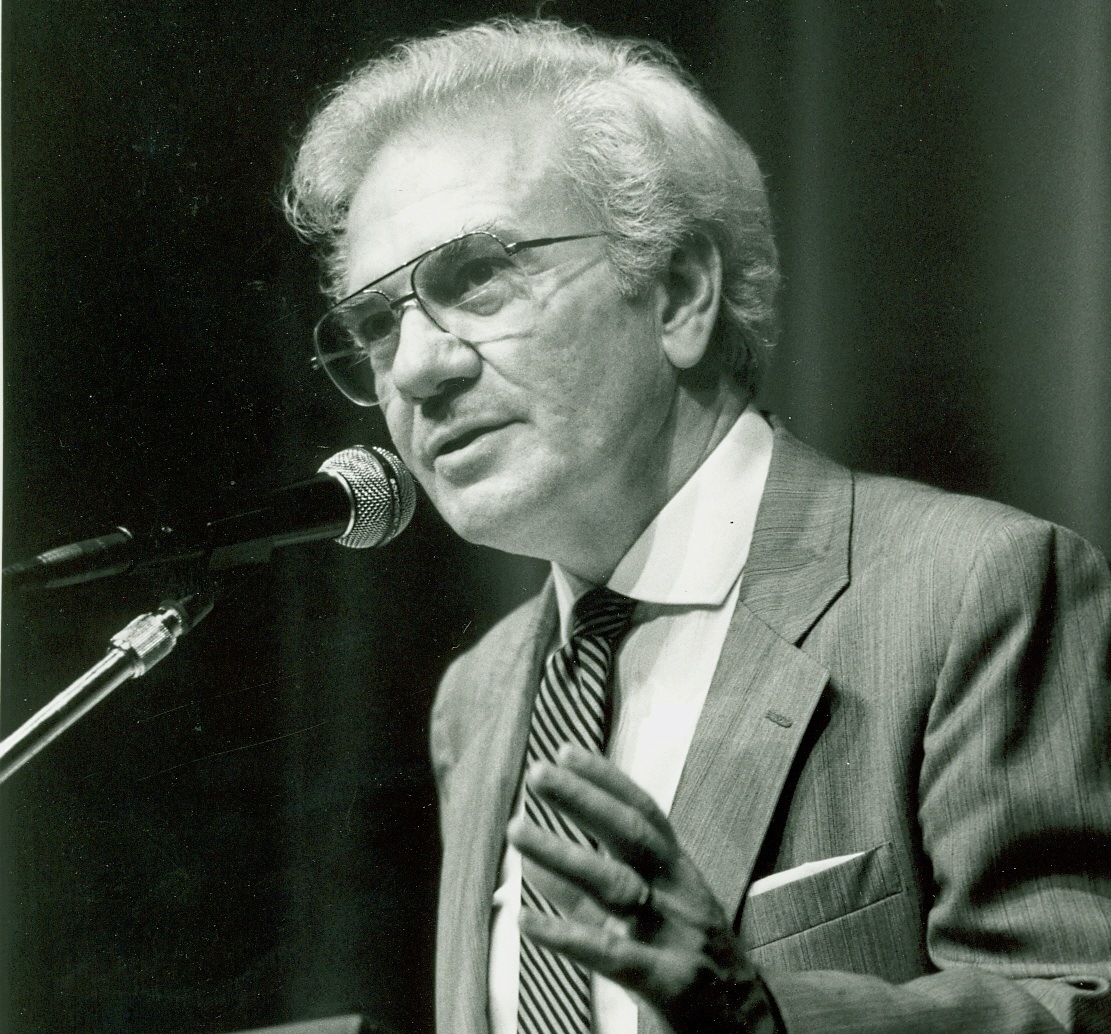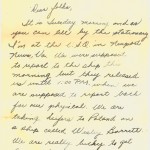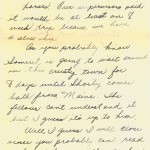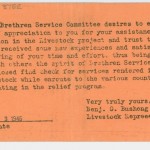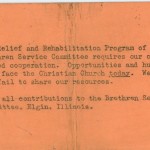Two weeks ago we shared a quote from Ernest Boyer regarding the influence his grandfather had on him and his understanding of service. The importance of service is very apparent through the many works of Dr. Boyer. For instance, the Carnegie Foundation’s publication, High School, suggested that American high schools incorporate a service unit that students must complete before they graduate and enter the “real world.” In the mind of Boyer, community service was just as valuable a learning experience for high schoolers as efficient time in the classroom. As it turns out, Boyer knew about the significance of service as a high school student firsthand.
On June 12, 1946, as a recent high school graduate, a young and vibrant Ernie Boyer left Newport News, Virginia on a ship called the Wesley Barrett bound for Poland. Fighting in Europe had finally ended one year earlier, but the devastation left in the wake of the Second World War could not be mended overnight. After World War II ended, European countries were desperate for aid – in any and all forms. Countries around the world and renowned service organizations rose to the occasion and worked hard to help get an entire continent back on its feet.
One such form of aid was shipping livestock across the Atlantic to ensure that families living all throughout Europe had access to basic food. Providing a family with a cow rather than just a ration of milk, helped provide ongoing relief. And after an event as destructive as World War II, that’s exactly the type of aid most Europeans needed. This is still the premise of Heifer International today. Of course, shipping livestock from one continent to another is no easy feat and requires volunteers willing to make the month-long trip with the animals.
Heifer International estimates that over 7,000 “cowboys” crossed the Atlantic Ocean with these shipments of animals, caring for them along the way. Ernie Boyer, at age 18, was one of them. After becoming involved somehow with the Brethren Service Committee, a faith-based organization shipping livestock to Europe after the war, Boyer left for Poland. In a letter to his family, dated June 11, 1946 (a day before his departure), Boyer wrote: “We are really lucky to get heifers because almost every boat leaving is taking horses. Our supervisors said it would be at least an 8 week trip because we have a slow ship.”
It is probably not wrong to imagine that many young men signed up for this task because they sought a sense of adventure. It gave them the chance to see more of the world, meet new people, and experience new things. I’m sure Ernie Boyer was thrilled to have that opportunity. One can also imagine, though, that despite the excitement, the joy of serving others in need and making a small but powerful impact had more of an effect on the young man than anything else – one that shaped his future career, beliefs, and energy – all because he chose to serve.
Check out the history page of Heifer International for more information about seagoing cowboys.
